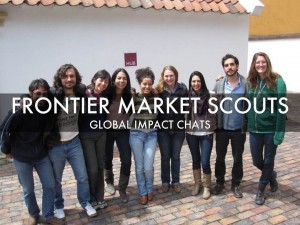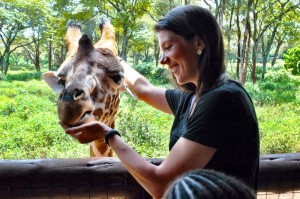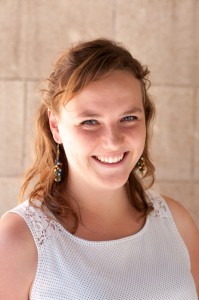MIIS and FMS Alumna Danielle Steer Shares Tips on Living and Working Abroad.
Over the course of the next two months, 21 Frontier Market Scouts (FMS) Fellows will be heading into emerging markets as scouts, business development consultants, and impact investing associates. FMS fellows come from a variety of backgrounds and have very diverse international experiences. For some, the FMS field placement is a first exposure to living and working in an emerging market.
As an alumna of the Monterey Institute MPA program, I can’t begin to count the number of experiences my colleagues and I have shared about being a development practitioner including “how to cope” and “methods for success”.
I decided to enlist the help of fellow FMS and Monterey Institute alumni to give our fellows advice for living and working in the developing world. Their collective advice stems from experience in Nigeria, Cameroon, Rwanda, Peru, Ecuador, Philippines, and India.
Tips for Living and Working in an Emerging Economy
- Talk to your taxi driver! They have some of the best suggestions for local places to check out and more generally just some great stories about life.
- Get close to a family or two, especially if you’re in a more rural area. This will give you so much more insight than just hanging with the expat crew. Have meals with these people a lot. They will also look out for you.
- Invest in a good fan that oscillates, embrace crowded bus rides, and keep a good sense of humor.
- It’s okay to be homesick. There may be moments when you long for the safety of “home.” Find a way to bring a piece of home with you to self-sooth when need be (i.e. a DVD, favorite book, cooking spices and ingredients, or Siracha).
- When family and friends visit have them bring you items from “home” like cheddar, mac & cheese boxes, and socks.
- Take part in four things that can expedite building relationships – playing sports, music/dancing, food, & drinking (albeit not to excess or to the point where you cannot make sound judgments).
- Be prepared for reverse culture shock. Sure, there will be some initial culture shock when you move out of your home country. But no one ever prepared me for the reverse culture shock. It might hit you when you order a coffee in Swahili at Starbucks or when you are overly cautious trying to cross the street in your hometown. If you can, get in touch with other people who might be experiencing it at the same time or who can sympathize. That community of people “who get it” when you are stunned by consistent electricity or hot running water is comforting.

Money & Safety
- In a taxi, lock both back doors. Sometimes people try to open them while you are sitting in traffic.
- Keep your money in two places on you. If a thief tries to steal from you, pull out your stack with less money and say that’s all you have.
- Keep $50 USD in small bills stashed away in your luggage.
- Try to find out before arriving at your assignment whether or not credit/debit cards are commonly accepted. More often than not, you’ll need to carry cash, so finding an ATM in a well-lit, secure location is key.
- Put together a thoughtful budget before you leave. How much are you willing and/or expecting to pay for housing each month? Groceries? It adds up quick, and if you’re traveling with a fixed amount of cash in the bank, you don’t want to find yourself in a sticky financial situation without a backup plan.
- A steripen is a great small investment. You can use it anywhere and it saves a bunch of money as opposed to buying bottled water. It’s also good for the environment.
- If you are a single (read: unmarried) female, regardless of having a boyfriend or not, be prepared to frequently explain your lack of husband. (Side note: You’re not likely to convince an inquiring man to change his stance on the matter, but don’t let it keep you from sharing your point of view. “Some of my female colleagues chose to wear fake wedding rings to avoid this, but I personally didn’t feel right pretending to be married just to avoid these conversations.”)
- Keep your bag or backpack in front of you down by your legs or on your lap when traveling or at a restaurant.
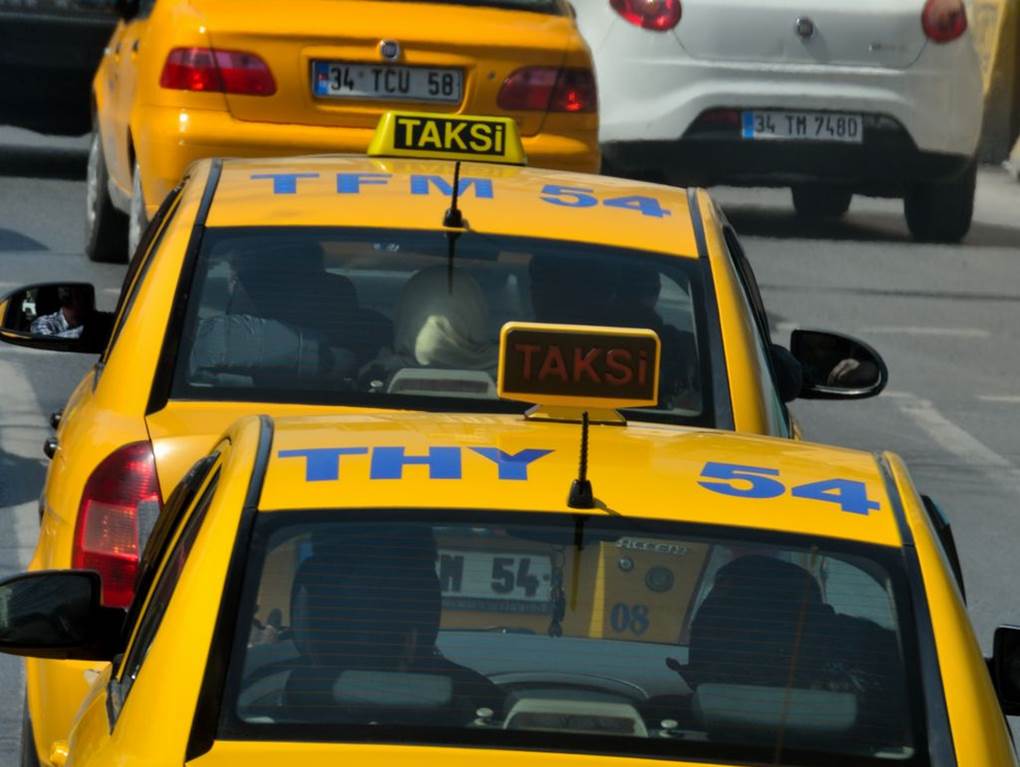
Keeping in Touch
- A picture is worth a thousand words. Take as many pictures as you can of your community, your work, and your travels but know when to be discreet either out of respect or for your own safety. It might feel vain, but ask people to take pictures of you in the field as well. It makes for better storytelling and helps your family and friends to better understand what you did. Not to mention when you’re feeling nostalgic upon your return, it’s nice to look back.
- Post about your travels via social media. Someone in your network will always have a good recommendation for a connection, place to eat, or site to visit.
Work Life
- Patience is a virtue: In Peru, everyone is late, and people have different professional standards. In the end these are all cultural differences and shouldn’t be taken personally.
- Take your colleagues out to lunch! You’ll get a taste for local cuisine, build relationships, and hopefully pick up on some local slang!
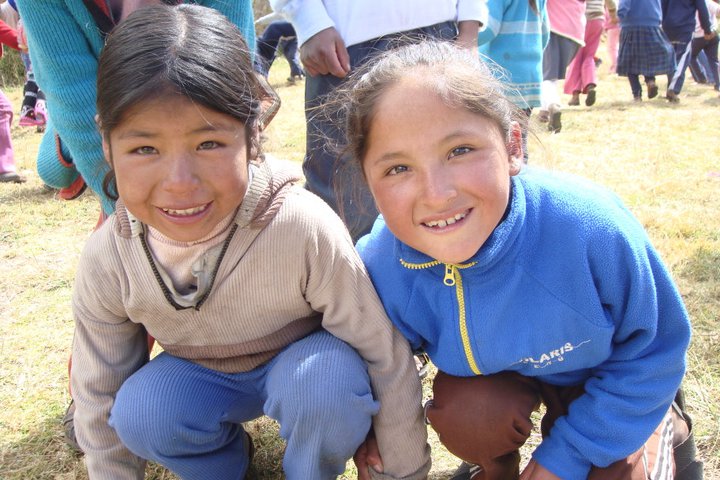
Final Advice
- During rainy season, don’t walk through flood water in the street. There may be a hole in the ground that you don’t see.
- Don’t be scared to rock a fanny pack!
- Never travel without the following:
Pocket knife & sewing kit
Lighter
Small padlock
Charcoal pills (for tummy aches and intestinal issues)
Calendula cream (for mosquito bites and burns)
Duct tape (It really fixes everything!)
Have any intriguing travel tips or stories of your own? Please share them via: professional.dev@miis.edu

